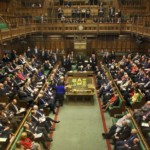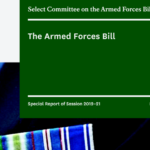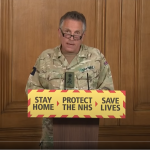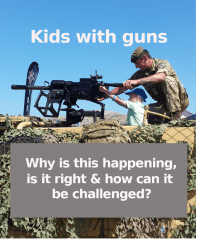ForcesWatch observe and respond to ways in which the military is being promoted as a normal part of everyday life. We believe that uncritical support for the armed forces stifles concerns about how young people are recruited and limits debate on alternatives to war.
There is concern that some government initiatives, such as Armed Forces Day, seek to manufacture a climate of uncritical national pride in the armed forces in order to garner public support for foreign policy. Policies promoting the interests of the armed forces are embedding the military into many of our civilian institutions.
Armed conflict causes enormous damage to all involved; widespread public debate about the role of the armed forces and their recruitment practices is therefore vital.
Useful resources
Is Anti-Militarism Unpatriotic?
Armed Forces Day 2024
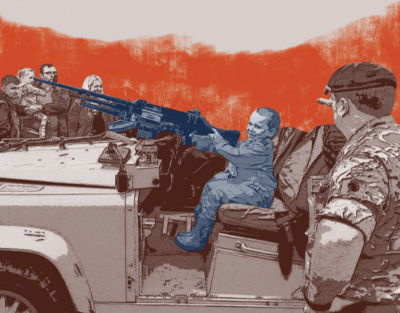 What's happening on Armed Forces Day this year. Download and/or order resources to use in your local community to challenge militarism.
What's happening on Armed Forces Day this year. Download and/or order resources to use in your local community to challenge militarism.
Armed Forces Day 2023: militarism comes to Cornwall
 This year the national Armed Forces Day event is being held in Falmouth, Cornwall. Many other events are being held around the country. We outline our concerns, including how the event is marketed, its promotion to young people and schools, and the inclusion of recruitment activities that allow young children to handle weapons.
This year the national Armed Forces Day event is being held in Falmouth, Cornwall. Many other events are being held around the country. We outline our concerns, including how the event is marketed, its promotion to young people and schools, and the inclusion of recruitment activities that allow young children to handle weapons.
Warrior Nation podcast – What’s wrong with Armed Forces Day?
Webinar: Mobilising the crisis: Covid-19 and the UK military
Warrior Nation: Militarism, War & Resistance

Planning Remembrance Day events in your school
 This guidance is based on five-years of research carried out by Oxford Brookes University and Brunel University London. It looks at how school leaders can approach discussing ethical themes related to conflict.
This guidance is based on five-years of research carried out by Oxford Brookes University and Brunel University London. It looks at how school leaders can approach discussing ethical themes related to conflict.
Kids with guns
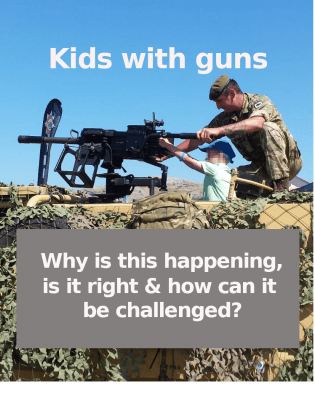 Should the armed forces encourage young people to interact with weapons and military vehicles?
Our new web resource looks at why is this happening and asks if it is right and how can it be challenged?
Should the armed forces encourage young people to interact with weapons and military vehicles?
Our new web resource looks at why is this happening and asks if it is right and how can it be challenged?
War School film
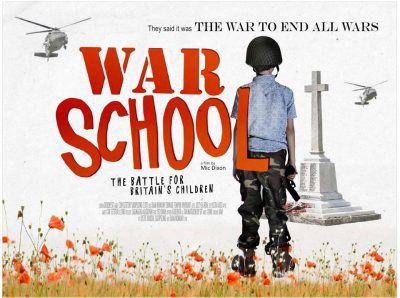 A film about recent militarism and the battle for the hearts and minds of young people in the UK. The film follows the stories of Ben Griffin, former SAS soldier and founder of Veterans for Peace UK, and Quaker activist Sam Walton, and features the work of ForcesWatch and partner organisations. See war.school and related learning resources.
A film about recent militarism and the battle for the hearts and minds of young people in the UK. The film follows the stories of Ben Griffin, former SAS soldier and founder of Veterans for Peace UK, and Quaker activist Sam Walton, and features the work of ForcesWatch and partner organisations. See war.school and related learning resources.








